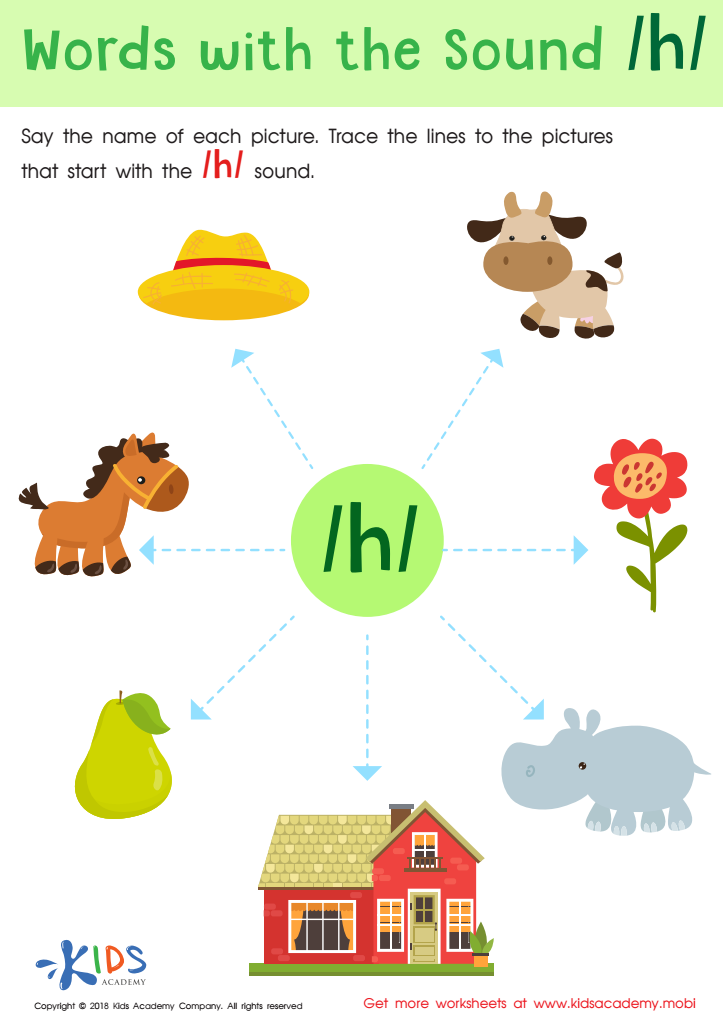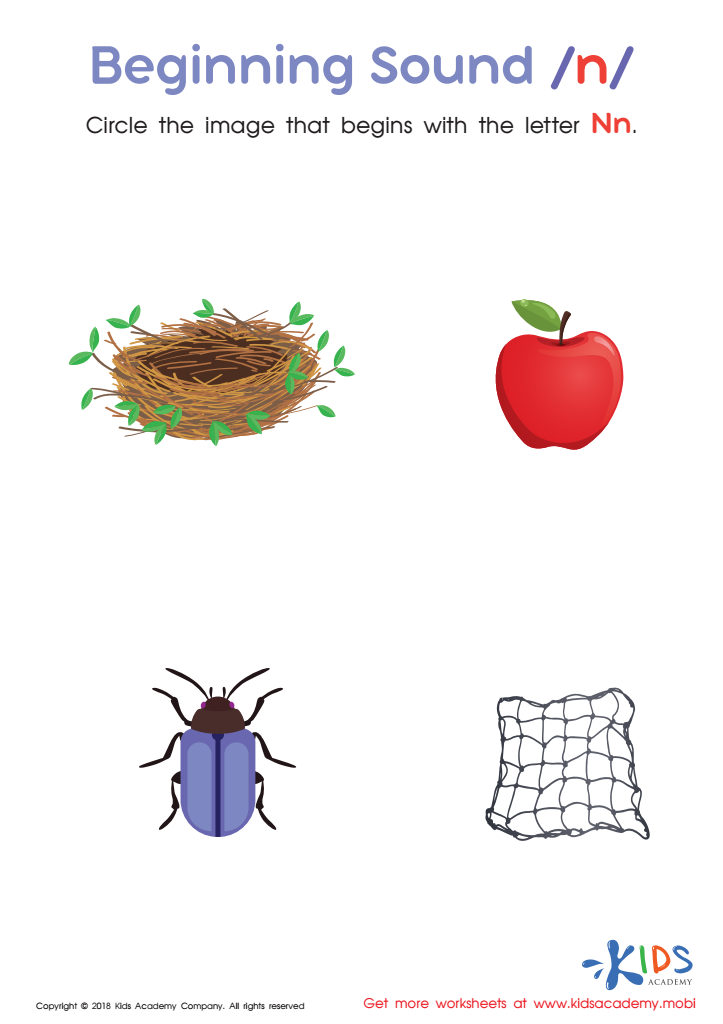Sound Association Normal Beginning Sounds Worksheets for Ages 3-6
3 filtered results
-
From - To
Discover engaging "Sound Association Normal Beginning Sounds Worksheets" designed for children ages 3-6! These worksheets help young learners develop their phonemic awareness by associating sounds with corresponding images and letters. Perfect for preschool and kindergarten, they encourage playful learning while enhancing critical early literacy skills. Each worksheet features vibrant visuals and simple activities that make practicing beginning sounds fun and effective. Support your child’s language development as they connect sounds to familiar objects, strengthening their vocabulary and reading readiness. Explore the collection today and create a strong foundation for future learning through interactive and enjoyable sound association activities!


Words with sound h Reading Worksheet


Beginning Sound «n» Worksheet


Words with sound f Reading Worksheet
Sound Association with Normal Beginning Sounds is crucial for early childhood education for several reasons. First, it lays the foundation for phonemic awareness, which is the ability to hear and manipulate sounds in words. For children aged 3-6, recognizing the initial sounds of words helps them develop strong reading skills later on. This awareness aids in decoding words as they begin to read, enhancing their literacy readiness and boosting their confidence in their reading abilities.
Moreover, connecting sounds to letters forms the basis of spelling and vocabulary development. As children learn to identify sounds, they start understanding the connection between phonetics and written language, making the transition from spoken to written communication smoother. Additionally, engaging activities emphasizing Normal Beginning Sounds foster critical thinking and auditory discrimination skills, which are vital in all areas of learning.
Furthermore, interactive and playful methods of teaching beginning sounds can make learning enjoyable for young children, promoting a positive attitude toward education. Parents and teachers should prioritize sound association as it cultivates essential skills that not only empower children in their academic journey but also enhance their overall cognitive development and communication skills. By investing in this foundational aspect of literacy, caregivers contribute significantly to a child's success in school and beyond.
 Assign to My Students
Assign to My Students

















